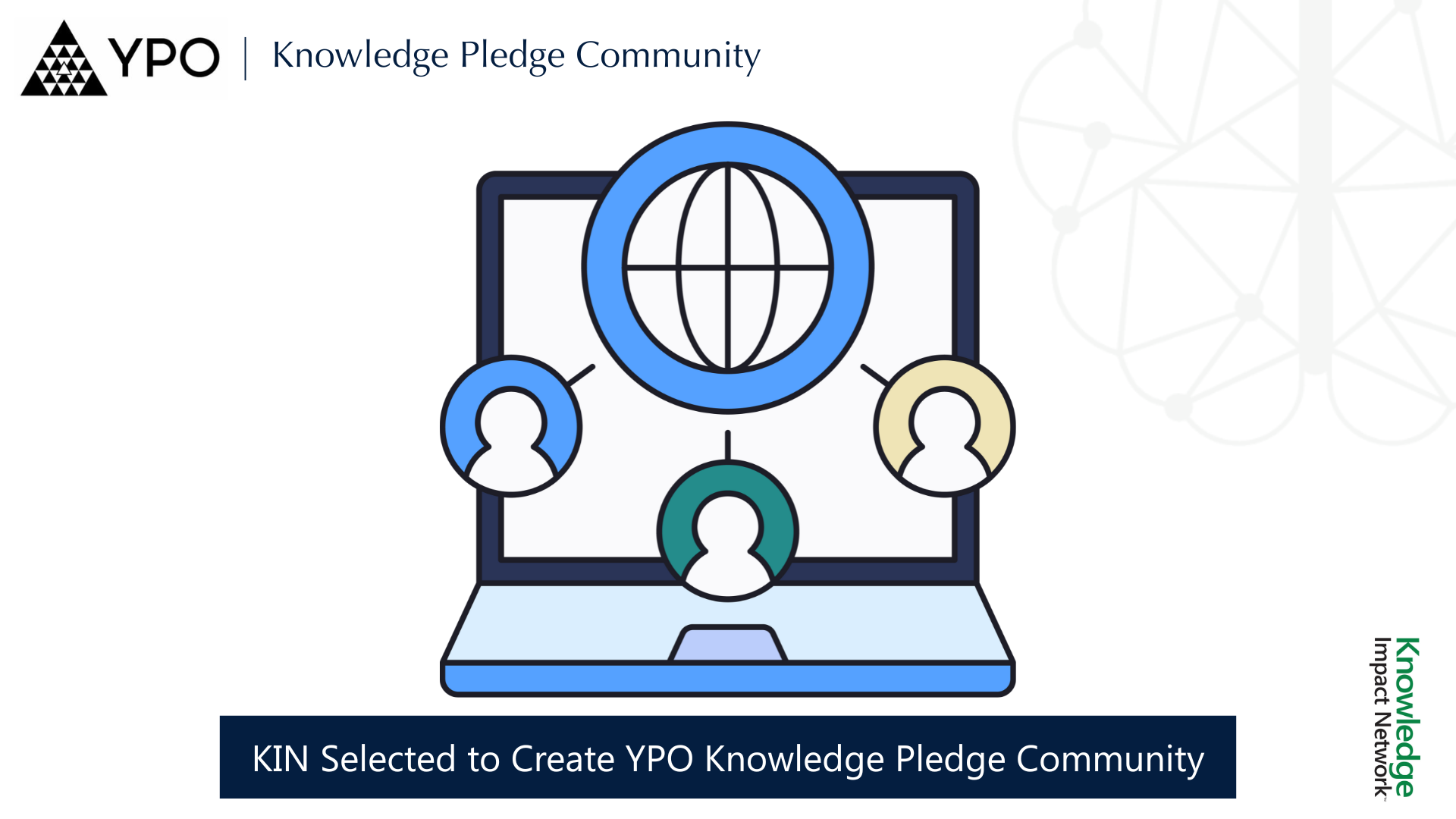May 9th, 2022
Knowledge Impact Network (KIN) successfully piloted Catalyze Sessions with six social ventures in the first quarter of 2022. In these Catalyze Sessions, groups of three-to-six volunteer leaders, our Knowledge Partners, met for 90-minutes with a social venture to help them address a specific challenge they are facing. The sessions ended with everyone committing to pledges of follow-up action. Just two months later, we are sharing with you some of the initial progress and impact these sessions sparked:
Teach To Work author Patty Alper, who actively promotes Project-based MentoringR as a means to dramatically close the skills gap and better prepare youth for 21st century jobs, wants to bring project-based mentoring to community colleges across the country. She says the team that was brought together for her Catalyze Session in January “was stellar and perfectly matched to the questions and the business.” As a result, Teach To Work will become part of the curriculum at City College of San Francisco, thanks to KIN Knowledge PartnerJohn Halpin, City College’s Dean of Workforce Development. John shared the insight that companies often request students to complete projects before applying for jobs, helping to crystallize community colleges as a key target group. Other signatories who attended the Catalyze Session, including Californians Dedicated to Education Foundation COO Wendy Dougherty, have been distributing Patty’s book, Teach To Work, to educators in California to facilitate broader adoption of Patty’s program in the area.

“The Teach to Work book and project-based mentoring® approach very much resonates with what I believe is a real need in our education system at multiple levels,” Wendy shared. “I am incubating some new initiatives within the school district where I serve and at the county level, and I am connected with existing programs where Teach to Work can be a great model and provide the framework that is needed.
The team continues its dialogue today with Patty on how to expand her model, exemplifying the action-oriented spirit of our Knowledge Partners to drive results and impact.
TIE Global Artisans, which is building a better bridge between African weavers and the world’s marketplace, giving them a better livelihood and saving their culture, is pursuing several opportunities that came from its KIN Catalyze Session in January. CEO Renay Loper said the session “was incredibly insightful for us,” particularly because “the signatories were from such diverse backgrounds/industries - the questions and observations that they asked/made provided a set of unique perspectives for us to consider, especially as we expand our outreach and audiences.”

The Knowledge Partners offered to connect TIE Global Artisans with celebrities who could showcase apparel made by the African weavers at prominent events such as the UN Sustainable Fashion Show. They also pledged to connect it to leading newspaper and magazine fashion editors for their advice, expert textile curators at several museums and owners of fair trade retail stores.
DignityMoves founder Elizabeth Funk, who has reimagined a solution to transitional housing for the homeless, is exploring how DignityMoves can create a for-profit model to fund its temporary and movable homeless community concept. Elizabeth said she got “lots of big, super ambitious and very inspiring” ideas for fundraising during DignityMoves’ Catalyze Session in February. Elizabeth said DignityMoves has already incorporated several of the tips from the session and will reshape some of its pitch as a result. DignityMoves’ flagship homeless community opened recently in downtown San Francisco and participating Knowledge Partners have been introducing the organization to municipal officials in other California cities.

Axion Education, which is designing a free online university education platform for those who are out of technical or financial reach from current education systems, sought advice on its pitch deck and financial modeling. Founder Sarah McCue said she got “invaluable advice” and has since worked on business assumptions and financial planning with one of the participating Knowledge Partners. Her financial model is now complete and ready to share with prospect funders. Two signatories, who had lived in Tanzania, suggested the country would be a perfect place for Axion to launch a pilot program.

AiCE Africa, which aims to develop expert artificial intelligence engineers in Africa, and provide top-notch AI Services, said its Catalyze Session with KIN Knowledge Partners gave it a chance to meet with key references, work more keenly on its business model, as well as fine tune its areas of focus to ensure sustainable value.

Natasha Ochiel, AiCE’s co-Founder, said KIN Knowledge Partners made several introductions to experts in their networks, including one who works for Amazon Web Services. Knowledge Partner Mehdi Mirakhorli, Associate Professor & Kodak Endowed Scholar, Rochester Institute of Technology, who works in cybersecurity and said he could help in that arena, pointed to several emerging AI areas, including in agriculture, and specifically regarding resilience, sustainability, intelligent farming, food system security, creating solutions to improve food supply chains and climate-smart agriculture.
H2Grow, a World Food Programme accelerator project that brings locally-adaptable and affordable hydroponic agriculture solutions to communities around the world, asked KIN if it would share its video describing how important it is to help communities with urban food production.

H2Grow says hydroponics allows farmers to grow food 7-8 times faster using 90 percent less water and 75 percent less space. Project director Manuela Zierau, who said sharing the video “could be immensely impactful for the project,” said she has been in touch with one of the foundations recommended by one of the KIN Knowledge Partners to explore funding opportunities.



%402x.svg)
%402x.svg)

.png)
.png)
.png)

.png)
%402x.svg)
%402x.svg)